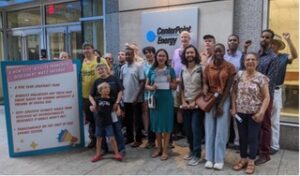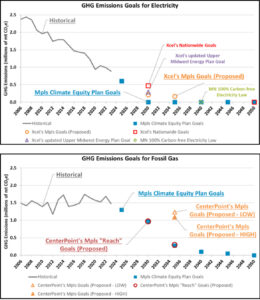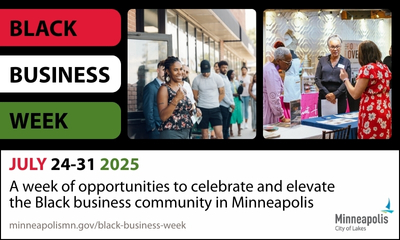
Organizations gathered for a rally downtown
BY LEE SAMELSON
Now more than ever, taking action at the local level to slash pollution that causes climate change is critical, and through a clean energy transition that Minneapolis residents overwhelmingly support across cultures and zip codes.
In the August issue of Southside Pride, I co-authored with Ulla Nilsen “Why utility franchise agreements matter for equitable climate solutions”. It echoed other recently published opinion pieces such as how the city’s utility franchise negotiations were “Minneapolis’ once-a-decade chance to fight for energy and the climate” by John Farrell.
On July 31, several organizations all joined in for a rally downtown that was covered by the Sahan Journal. These included Isaiah, Unidos MN, NorthStar Sierra Club and Community Power (the Minneapolis-based energy democracy nonprofit which I work for). CenterPoint was invited but did not show up. Constituents from all 13 wards in the city told Xcel Energy’s local government relations staff what they wanted the next utility franchise agreements to include:
• Shorter contract terms (five years instead of ten) to allow more frequent reassessment.
• Franchise fees that are set up to make the biggest polluters pay their fair share, based on electricity carbon intensity and fossil gas volume, to incentivize clean energy.
• Clear, enforceable annual performance metrics for utilities with consequences for failure to meet city goals.
• Commitment to transparency about the cost of our local energy system.
On Jan. 13, after months of being negotiated in secret, Minneapolis’ tentative new agreements with Xcel and CenterPoint were published on the city website.
At least 2 city council members so far, Katie Cashman (Ward 7), and Robin Wonsley (Ward 2) have both shared in their recent newsletters, that the agreements also have “equity expectations in service quality and program delivery, and improvements to information sharing for work done on public streets” that were not in the previous 10-year agreements.
The most interesting link on the city’s webpage is “The City Priorities of Proposed Utility Franchise Agreements and MOUs” that sums up all 4 documents.
 It shows that these agreements will mark the first time the utilities have made a commitment to greenhouse gas emissions reduction goals within a specific city boundary, if passed by the city council and signed by the mayor and each utility.
It shows that these agreements will mark the first time the utilities have made a commitment to greenhouse gas emissions reduction goals within a specific city boundary, if passed by the city council and signed by the mayor and each utility.
However, simply having impressive goals on paper is no substitute for devoting resources needed to meet them.
A presentation to the city council on Jan. 9 revealed that we are behind on meeting 5 out of 7 existing energy and climate goals, all except the 2 involving municipal operations.
Let that be a segway to how both Franchise Agreements are also accompanied by 2 memorandums-of-understanding (MOUs) with each utility that re-establishes the Minneapolis Clean Energy Partnership.
Back in 2013 both utilities pledged to be “good partners” in helping Minneapolis reach its Climate Action Plan goals as a way to dissuade the city from the grassroots-backed effort to consider forming a green municipal energy utility. City leaders formed the Partnership to provide both utilities every chance to demonstrate that they were actually genuine about their promise.
Currently, the Partnership states 3 main themes which the city and both utilities state their intent to collaborate on:
• Decarbonizing Homes via Electrification & Energy Efficiency Retrofits.
• Equitably Accelerate In-Boundary Solar in Support of the City’s Goal of 30 percent Distributed Solar by 2030.
• Impactful Reductions in Commercial and Industrial Building Gas Use.
Despite some recent successes mentioned in the Partnership’s most Recent Annual Report, such as a home electrification guide, I have personally observed some ongoing challenges in the space.
First, CenterPoint Energy still has a website up that gives kickbacks to installers of gas appliances and has ghostwritten comments in favor of rebates for gas appliances, which both go against the spirit of stated electrification goals.
Second, the Partnership’s task force to address Xcel’s delays in interconnecting local solar projects has not met for over a year.
Third, neither Xcel nor CenterPoint have been willing to offer Minneapolis the field-tested version of Inclusive Financing for energy efficiency despite the Partnership defining it back in 2018 as part of their work plan. CenterPoint was not willing to pilot it without demanding they receive a guaranteed minimum profit margin on it.
For these reasons, this Partnership deserves more public attention so that the utilities can be held accountable to their agreements. Yet for well over a year, the Partnership’s website has been dysfunctional due to technical troubles. Also, the city’s monthly sustainability newsletter has not been including the upcoming Clean Energy Partnership meetings which would be the other way they can help constituents engage in monitoring the Partnership.
One disappointment from the negotiations was that the city was not able to successfully negotiate into the MOUs hiring an outside administrator for the Clean Energy Partnership to save staff capacity, or to give the Partnership’s 15-member Energy Vision Advisory Committee of community experts some greater decision-making powers. But these are structural improvements that we can mobilize for and win over the next few years.
The city is accepting public comment until Feb. 13 at 9 a.m. before the full 13-member city council takes a vote. You can submit public comments by email at: councilcomment@minneapolismn.gov or in the online public comment form.






















